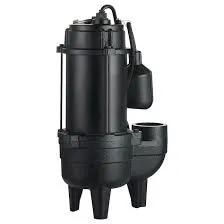English
- Afrikaans
- Albanian
- Amharic
- Arabic
- Armenian
- Azerbaijani
- Basque
- Belarusian
- Bengali
- Bosnian
- Bulgarian
- Catalan
- Cebuano
- Corsican
- Croatian
- Czech
- Danish
- Dutch
- English
- Esperanto
- Estonian
- Finnish
- French
- Frisian
- Galician
- Georgian
- German
- Greek
- Gujarati
- Haitian Creole
- hausa
- hawaiian
- Hebrew
- Hindi
- Miao
- Hungarian
- Icelandic
- igbo
- Indonesian
- irish
- Italian
- Japanese
- Javanese
- Kannada
- kazakh
- Khmer
- Rwandese
- Korean
- Kurdish
- Kyrgyz
- Lao
- Latin
- Latvian
- Lithuanian
- Luxembourgish
- Macedonian
- Malgashi
- Malay
- Malayalam
- Maltese
- Maori
- Marathi
- Mongolian
- Myanmar
- Nepali
- Norwegian
- Norwegian
- Occitan
- Pashto
- Persian
- Polish
- Portuguese
- Punjabi
- Romanian
- Russian
- Samoan
- Scottish Gaelic
- Serbian
- Sesotho
- Shona
- Sindhi
- Sinhala
- Slovak
- Slovenian
- Somali
- Spanish
- Sundanese
- Swahili
- Swedish
- Tagalog
- Tajik
- Tamil
- Tatar
- Telugu
- Thai
- Turkish
- Turkmen
- Ukrainian
- Urdu
- Uighur
- Uzbek
- Vietnamese
- Welsh
- Bantu
- Yiddish
- Yoruba
- Zulu
Telephone: +86 13120555503
Email: frank@cypump.com
Dec . 20, 2024 12:22 Back to list
septic system pump
Understanding Septic System Pumps Essential Components for Wastewater Management
Septic systems play a crucial role in residential wastewater management, particularly in rural areas where municipal sewer systems are not available. At the heart of many septic systems lies the septic system pump, an essential component that ensures effective wastewater treatment and disposal. This article delves into the functionality, types, maintenance, and considerations regarding septic system pumps, highlighting their importance in maintaining a healthy and functional home environment.
What is a Septic System Pump?
A septic system pump, often referred to as a sewage pump or effluent pump, is designed to move wastewater from the septic tank to the drain field or leach field. It plays a vital role in systems where gravity alone is insufficient to handle waste movement, typically in hilly or uneven terrain. The pump is responsible for transferring liquid waste that has been naturally settled in the septic tank, sending it onwards for further treatment and filtration into the soil.
Types of Septic System Pumps
There are several types of septic pumps, each designed for specific functions within the septic system
1. Effluent Pumps These are the most common type used in septic systems. Effluent pumps are typically submerged in the septic tank and help in pumping liquid waste that has undergone preliminary settling and treatment. They work efficiently to transport effluent to the designated drain field.
2. Sewage Pumps Sewage pumps are designed to handle both solid and liquid waste. They are more robust than effluent pumps and are generally used in situations where the waste includes larger particles or where a lift station is required to pump wastewater over long distances or elevations.
3. Grinder Pumps Grinder pumps are specialized machines that not only pump liquid waste but also grind up solid waste to a smaller particle size before pumping. This function is particularly advantageous in systems with long discharge lines or where gravity flow is challenging. They are often used in low-lying areas and can also facilitate the installation of plumbing below the main sewer line.
septic system pump

4. Lift Station Pumps Lift stations consist of a pump station with a containment basin, which gathers the wastewater before pumping it to its final treatment destination. These are crucial in lower elevation areas where a natural gradient is insufficient for gravity-fed systems.
Maintenance of Septic System Pumps
Proper maintenance of septic system pumps is vital for their longevity and effective operation. Here are some key maintenance tips
1. Regular Inspection Homeowners should regularly inspect their septic system and pumps. Checking for signs of abnormal sounds, leaks, or odors can help identify issues before they become significant problems.
2. Clear Debris Ensure that the area around the pump and septic tank remains clear of debris, vegetation, and any other obstructions that could interfere with its operation.
3. Professional Service It is advisable to have a professional inspect and service the septic system and pumps annually or bi-annually. This includes checking the electrical components, float switches, and ensuring that the pump operates smoothly.
4. Educate on Usage Educating household members about water conservation and the proper disposal of waste is essential. Avoid flushing inappropriate items that can clog or damage the system, such as wipes, fats, or hazardous materials.
Conclusion
A septic system pump is indispensable for homeowners relying on septic systems for wastewater management. Understanding the types, functions, and maintenance of these pumps equips owners with the knowledge necessary to ensure efficient operation, prolong the system's lifespan, and safeguard the environment. For those living in areas without access to municipal sewer services, taking proactive measures with respect to their septic system is crucial. By prioritizing regular maintenance and responsible usage, homeowners can ensure a stable and effective wastewater management solution for years to come.
-
Horizontal Split Case Pump with GPT-4 Turbo | High Efficiency
NewsAug.01,2025
-
ISG Series Pipeline Pump - Chi Yuan Pumps | High Efficiency, Durable Design
NewsAug.01,2025
-
Advanced Flue Gas Desulfurization Pump with GPT-4 Turbo | Durable & Efficient
NewsJul.31,2025
-
ISG Series Vertical Pipeline Pump - Chi Yuan Pumps | Advanced Hydraulic Design&Durable Construction
NewsJul.31,2025
-
ISG Series Vertical Pipeline Pump - Chi Yuan Pumps | Energy Efficient & Low Noise
NewsJul.31,2025
-
pipeline pump - Chi Yuan Pumps Co., LTD.|High Efficiency&Low Noise
NewsJul.31,2025










